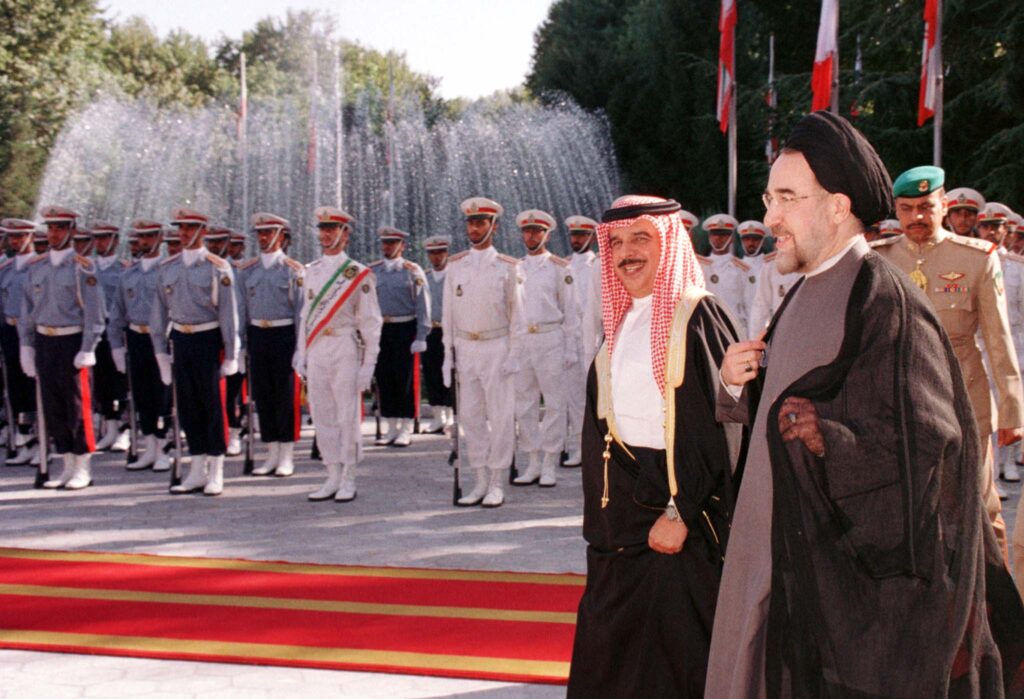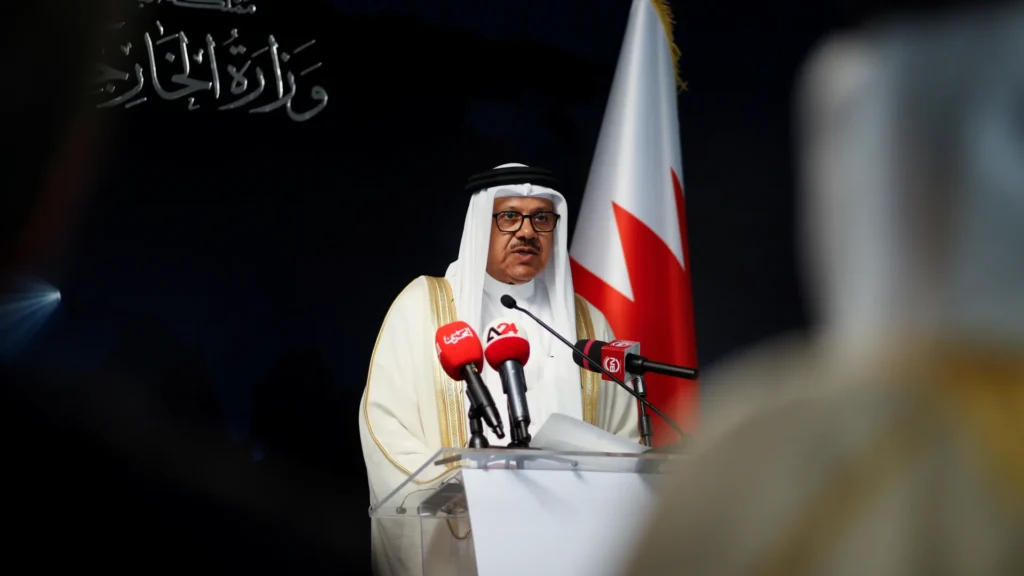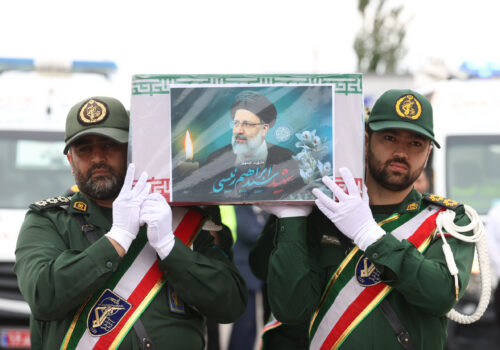In recent months, there has been a growing buzz around the possibility of Bahrain and Iran mending their long-standing diplomatic rift. This shift comes at a time when several countries in the Middle East are reconsidering their regional relationships and seeking new avenues for cooperation. For Bahrain, which has been a key ally of Saudi Arabia and a member of the Gulf Cooperation Council (GCC), the idea of improving relations with Iran is significant, particularly after a decade of strained ties. But is there enough political will to make this a reality, or is this just another diplomatic talking point?
Background: A History of Tension
Bahrain and Iran have a complex history, shaped by a mix of geopolitical interests, religious divides, and regional power struggles. The two countries broke off diplomatic relations in 2016 following an escalation in tensions between Iran and Saudi Arabia, which had a significant impact on Bahrain, given its close ties with Riyadh.

The triggering event was the execution of Sheikh Nimr Baqir al-Nimr, a prominent Shiite cleric, by Saudi Arabia. His execution sparked protests and outrage in Iran, and the Iranian public stormed the Saudi embassy in Tehran in response. Bahrain, standing with its ally Saudi Arabia, severed diplomatic ties with Iran in solidarity, deepening the rift between the two nations.
Since then, Bahrain and Iran have had limited contact, with their relationship marked by cold diplomacy. Bahrain, as a Sunni-majority state, and Iran, a Shiite powerhouse, have often found themselves on opposing sides of regional conflicts, particularly in places like Yemen and Syria. However, the recent shifts in regional dynamics have raised questions: Could the time finally be right for a new chapter in Bahrain-Iran relations?
Recent Developments: A Thaw in Diplomatic Ties
In June 2024, a significant event unfolded when Bahrain’s Foreign Minister, Abdullatif bin Rashid al-Zayani, traveled to Tehran to meet with Iran’s acting Foreign Minister, Ali Bagheri Kani. This marked the first formal diplomatic interaction between the two countries in years. During their meeting, both sides agreed to initiate discussions aimed at restoring full diplomatic relations. This meeting was seen as a positive step, signaling a potential thaw in their long-standing animosity.
The talks focused on how the two nations could restore ties and cooperate on matters such as trade, security, and regional stability. The possibility of normalizing diplomatic relations was openly discussed, and both parties committed to engaging in further dialogue.
Notably, Bahrain’s move to engage with Iran comes after a broader shift in the Gulf’s diplomatic climate. Countries in the region are slowly starting to reconsider their policies and alliances, especially after Saudi Arabia and Iran reached a landmark agreement in March 2023 to restore diplomatic relations. The deal, brokered by China, saw both nations reopen embassies and agree to reduce tensions that had been simmering for years.
Bahrain’s interest in improving relations with Iran may also be driven by a desire to stabilize the region. By restoring ties with Iran, Bahrain hopes to alleviate the political and economic pressures stemming from regional instability. While the relationship between Bahrain and Iran has historically been challenging, the evolving geopolitical landscape provides both nations with an opportunity to reset their ties.
Economic Considerations: The Role of Trade and Financial Cooperation
A key factor driving the push to restore diplomatic relations is the potential for economic cooperation. Both Bahrain and Iran have significant economic interests in enhancing bilateral trade. Bahrain, a small island kingdom, has limited natural resources and relies heavily on trade, financial services, and international investments. Iran, with its vast natural resources and growing industrial base, presents a valuable partner for Bahrain in terms of trade, energy cooperation, and infrastructure projects.
In particular, the issue of frozen Iranian assets in Bahrain has become a central point of discussion. For years, a significant amount of Iranian funds has been frozen in Bahrain due to the diplomatic freeze. As part of the ongoing discussions, both sides are reportedly negotiating ways to unfreeze these assets, which could provide a financial boost to Iran’s economy, which has been heavily impacted by international sanctions.

Restoring economic ties could benefit both countries. Bahrain could gain access to Iranian markets and energy resources, while Iran could see a recovery in its economic fortunes. This would also align with Bahrain’s broader goals of diversifying its economy and reducing its reliance on Saudi Arabia and other Gulf states.
Regional Context: A Shift Towards Cooperation
The thaw in Bahrain-Iran relations is not an isolated development. Across the region, there has been a gradual shift towards cooperation among countries that were once deeply divided. The historic agreement between Saudi Arabia and Iran to restore diplomatic ties in 2023 set a precedent for other regional players to reconsider their stances. Following that agreement, countries like Kuwait, Egypt, Sudan, and even the United Arab Emirates (UAE) have taken steps to repair their relationships with Iran.
This shift has been largely driven by the changing dynamics of the Middle East. In the past, the Gulf states, led by Saudi Arabia, viewed Iran as a destabilizing force due to its regional influence and support for proxy groups in countries like Yemen and Syria. However, the growing recognition of the importance of dialogue and diplomacy has led to a recalibration of these relationships.
Bahrain’s decision to engage diplomatically with Iran signals a recognition that regional stability and security may no longer be achievable through isolation and confrontation. The hope is that by improving ties with Iran, Bahrain can contribute to a more peaceful and stable Middle East.
Challenges: Obstacles to Reconciliation
Despite the positive signs, several obstacles remain in the way of full normalization between Bahrain and Iran. One of the most significant hurdles is the issue of territorial disputes, particularly the ownership of three islands in the Persian Gulf—Abu Musa, Greater Tunb, and Lesser Tunb. These islands are strategically important, and both Bahrain and Iran have historically laid claim to them.
In addition, Bahrain’s close relationship with Saudi Arabia and other GCC countries complicates its approach to Iran. Bahrain has to balance its commitment to the GCC with its desire to engage with Iran. The kingdom’s security concerns, especially in relation to Iran’s influence in the region, cannot be ignored. Bahrain will need to tread carefully to ensure that improving ties with Iran does not jeopardize its alliance with Saudi Arabia and other Gulf partners.
Moreover, both countries will need to address internal challenges. Bahrain, as a majority Sunni state with a significant Shiite population, will have to navigate domestic political sensitivities, while Iran will need to overcome internal opposition from hardline factions that have traditionally been wary of rapprochement with the Gulf states.
Looking Ahead: The Future of Bahrain-Iran Relations
The road to full diplomatic normalization between Bahrain and Iran will likely be long and fraught with challenges. However, the recent discussions represent a significant shift in the regional landscape and offer hope for a new era of cooperation. If both countries can find common ground and overcome their differences, their relationship could serve as a model for other Middle Eastern nations seeking to resolve their differences through dialogue rather than conflict.
The international community will be closely watching the developments between Bahrain and Iran, as any change in their relationship could have far-reaching implications for regional stability and security. While it remains to be seen whether this thaw will lead to lasting peace, the mere possibility of reconciliation represents a positive step forward in the complex and often volatile world of Middle Eastern diplomacy.
Conclusion
Bahrain and Iran are taking the first tentative steps toward restoring diplomatic relations, a development that has the potential to reshape the Middle East’s geopolitical landscape. While challenges remain, the signals of cooperation and the shared interest in regional stability offer hope that the two nations can overcome their differences. The future of Bahrain-Iran relations remains uncertain, but the growing momentum for dialogue could lead to a new chapter in the Middle East’s complex history.
BNP Paribas Rethinks Middle East Strategy Amid Operational Changes



